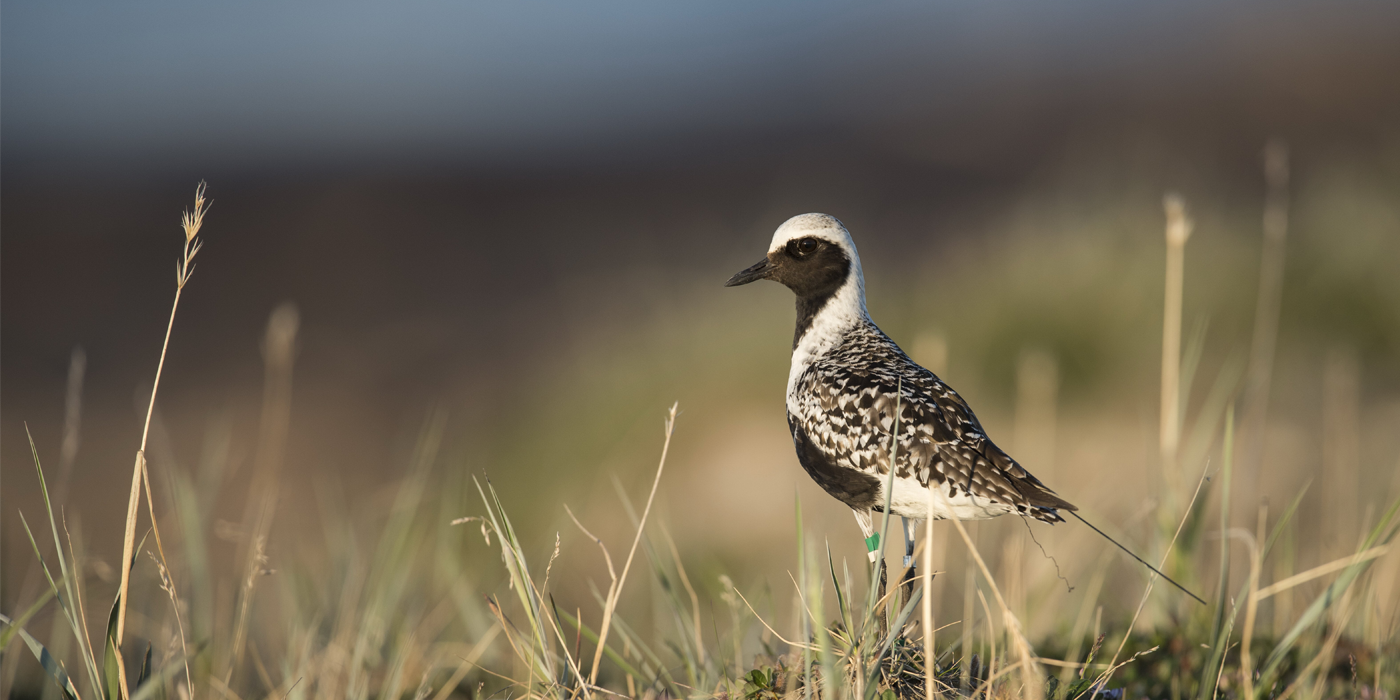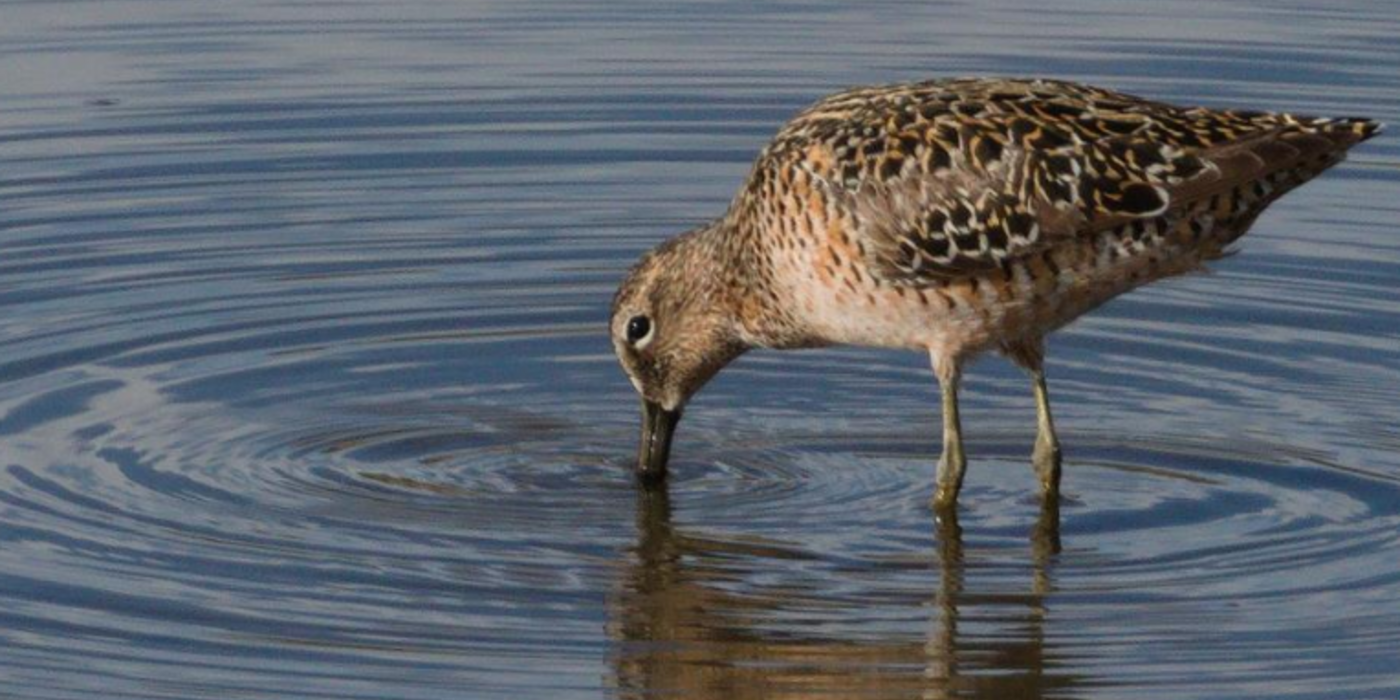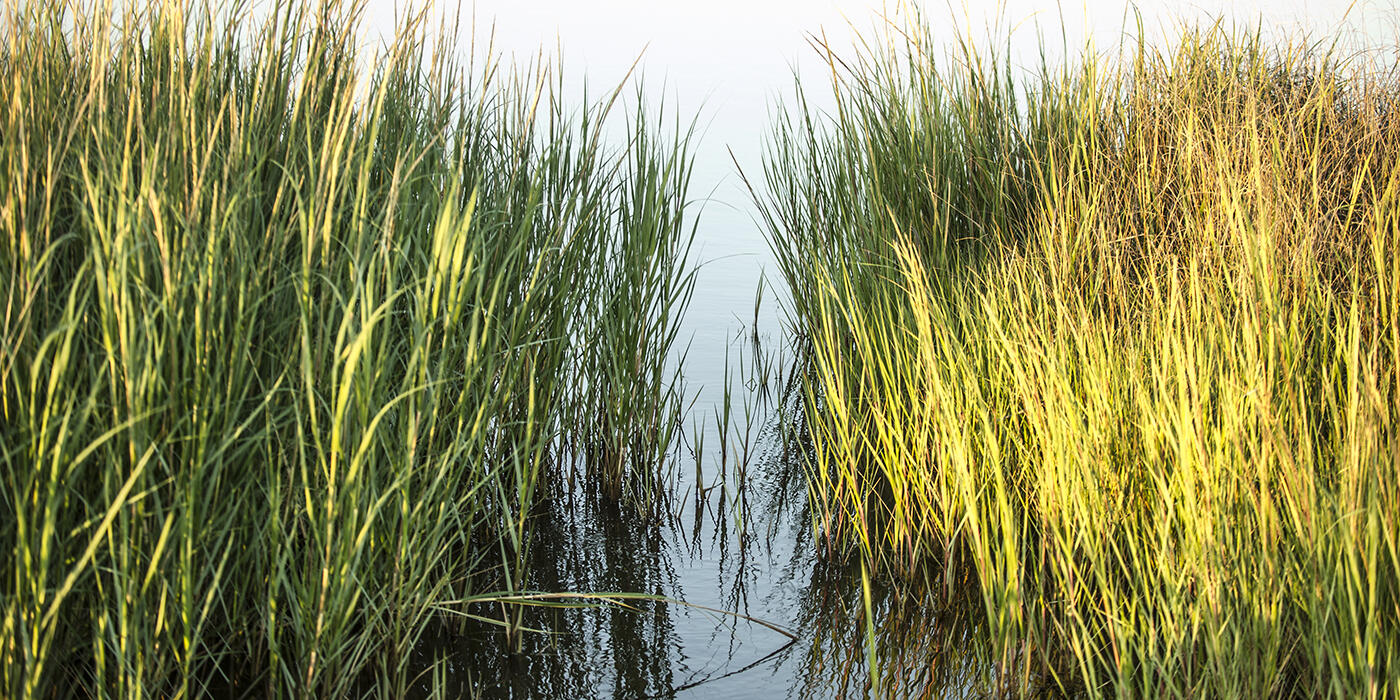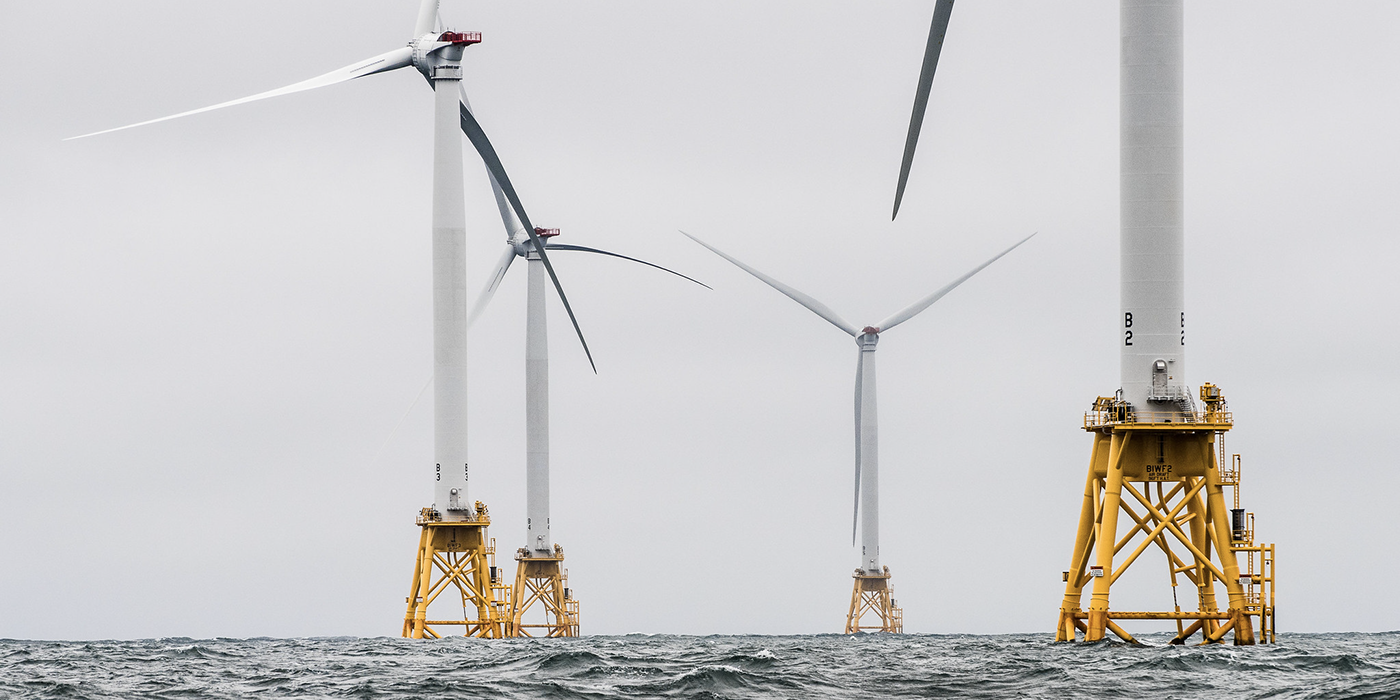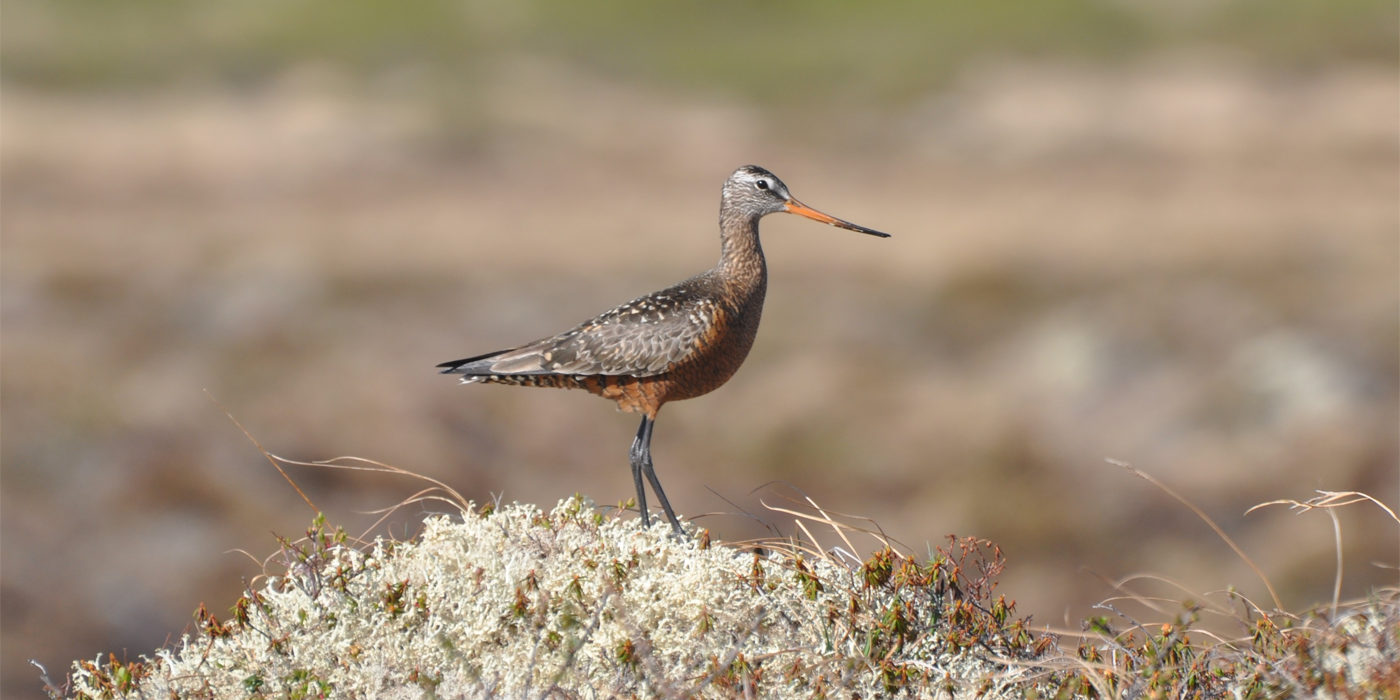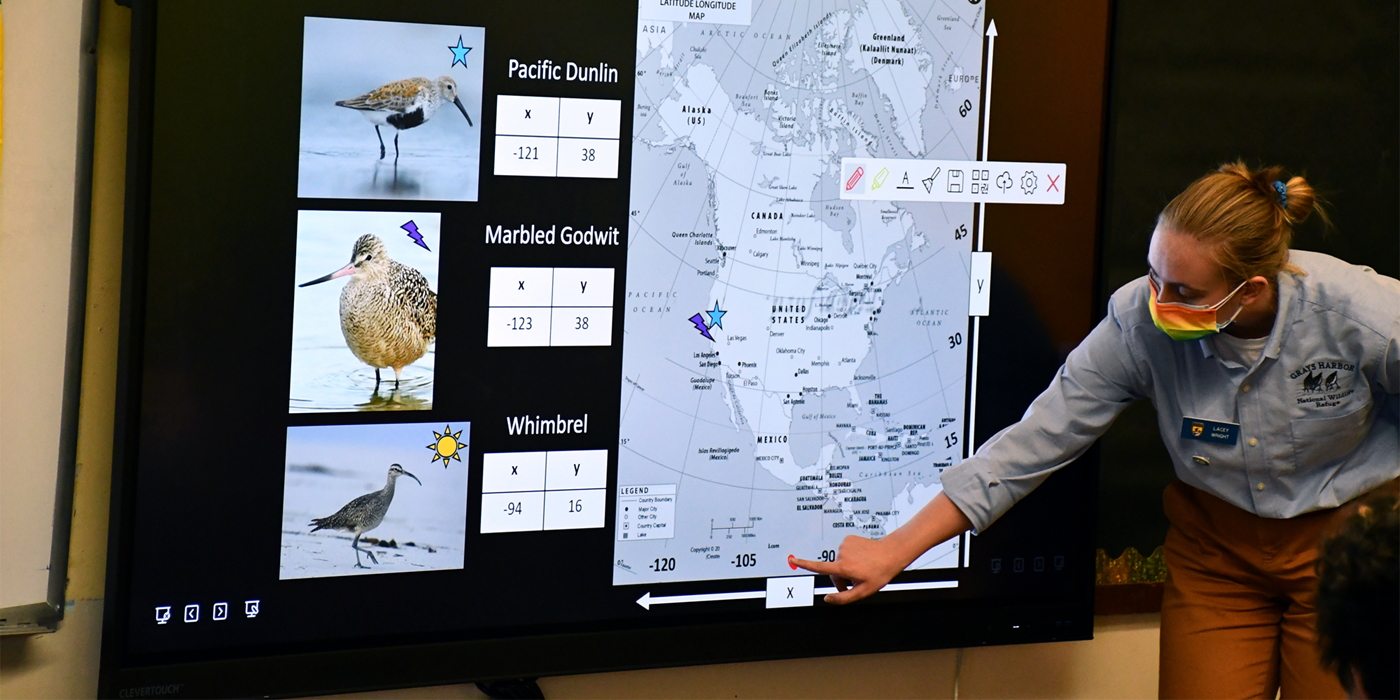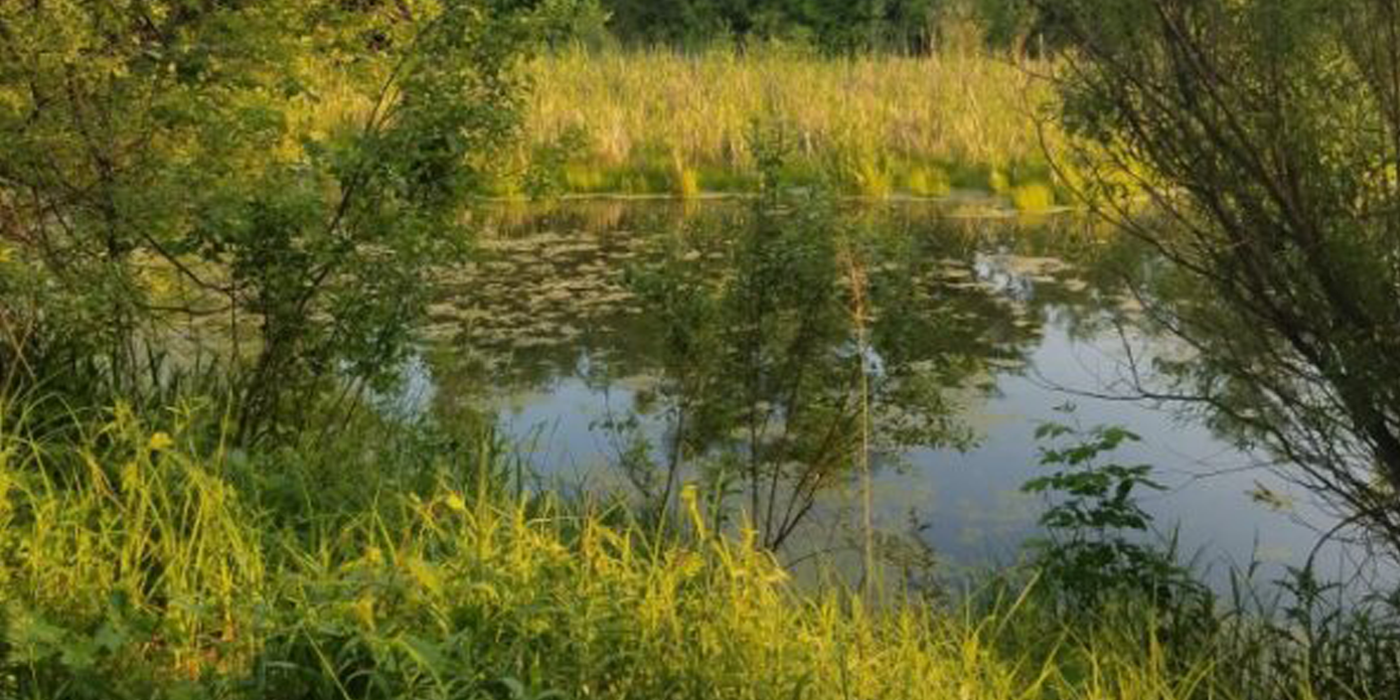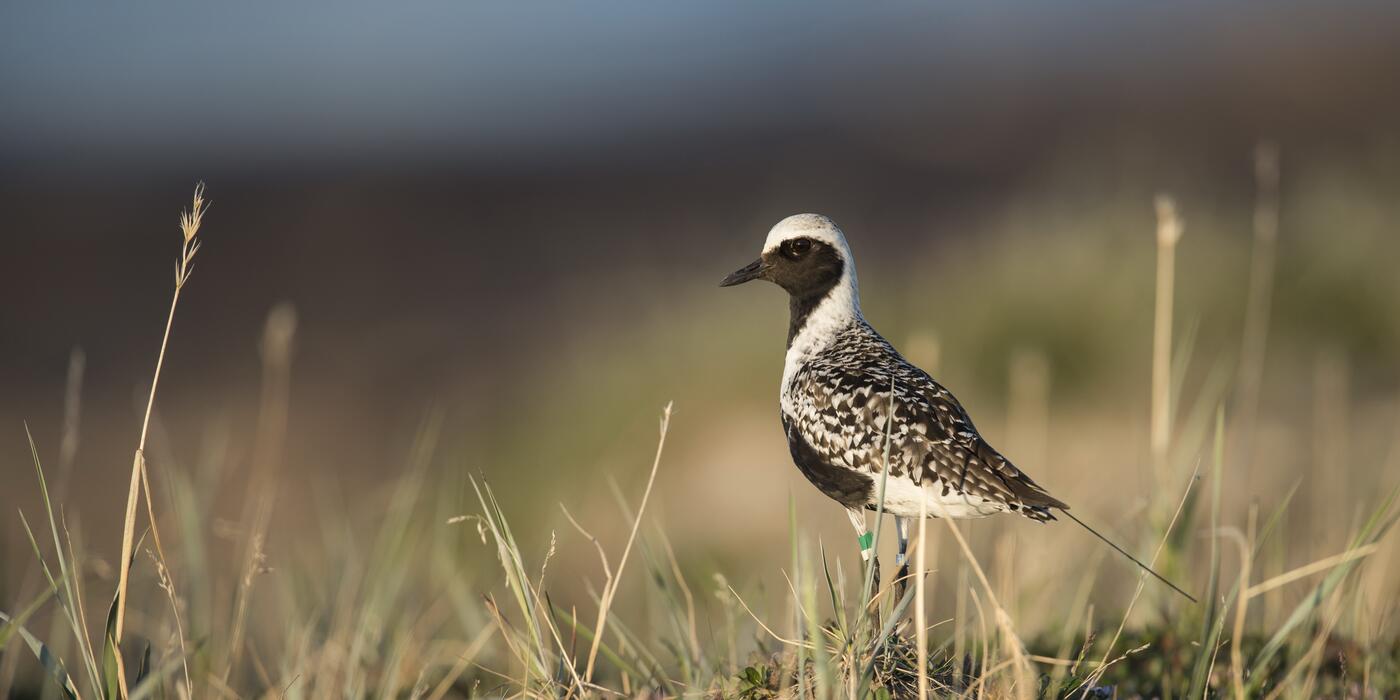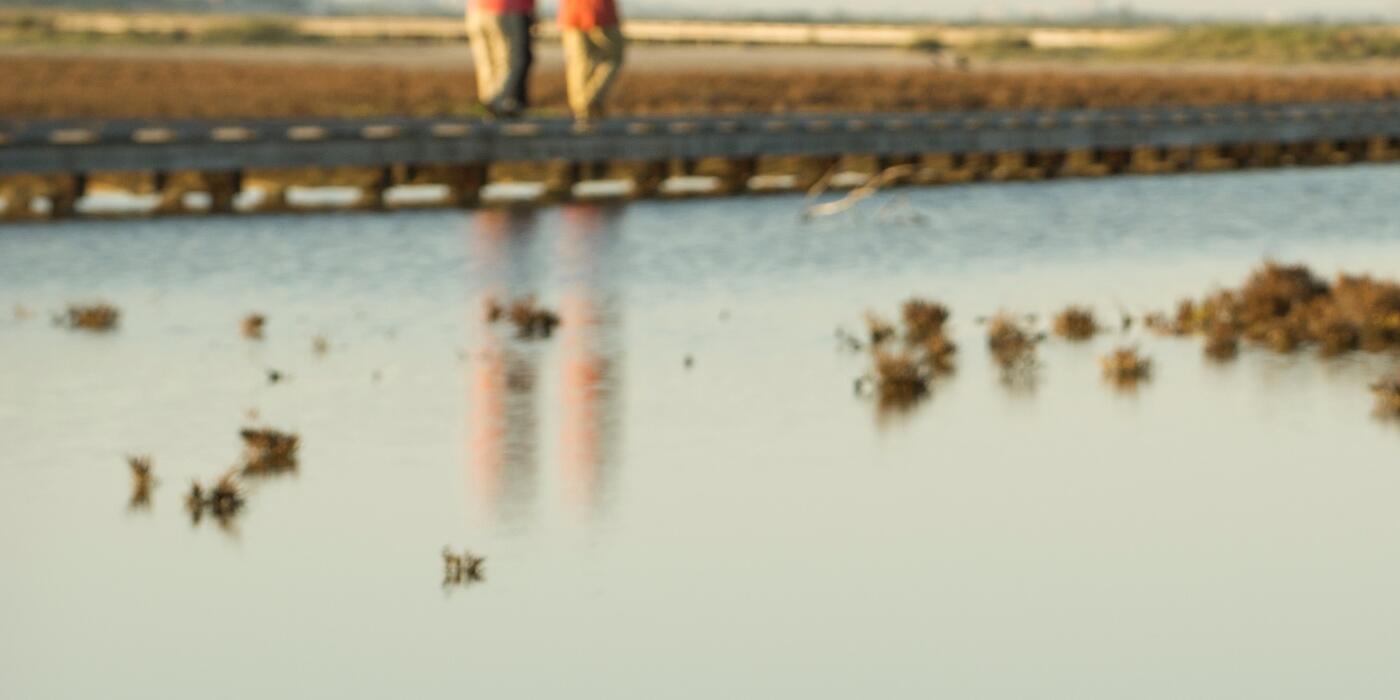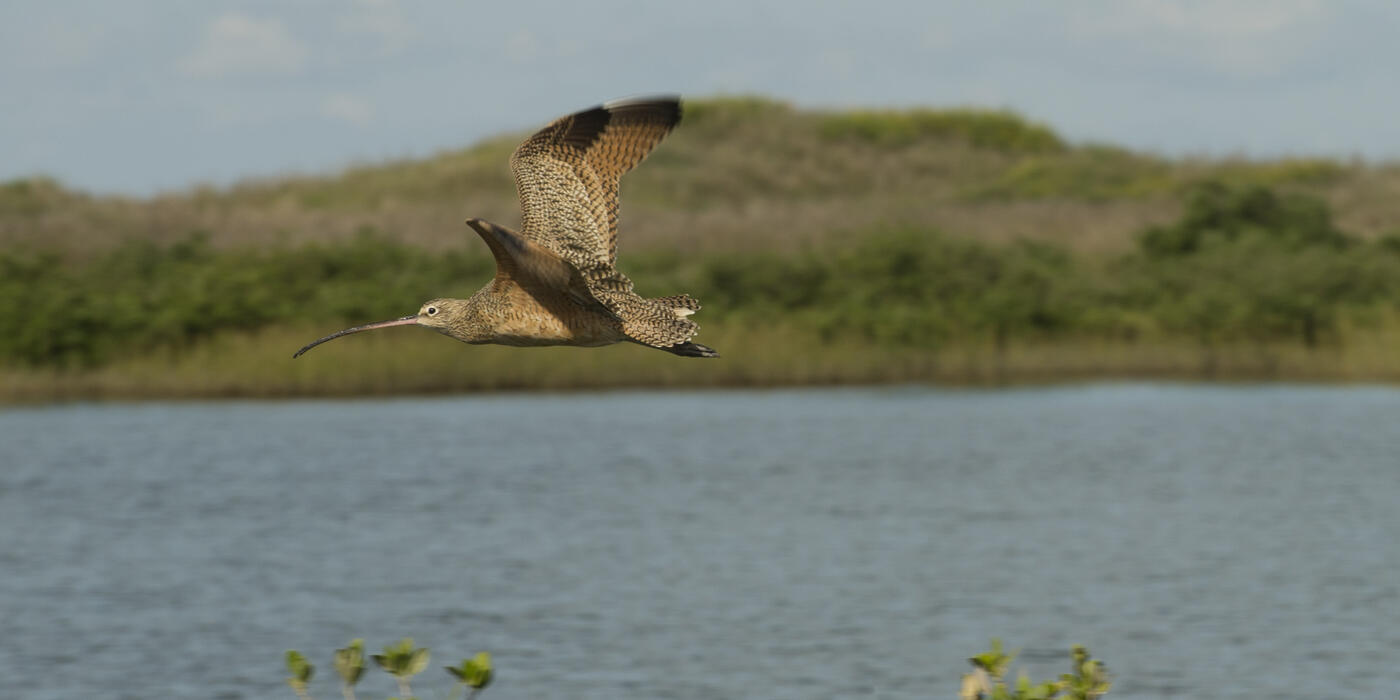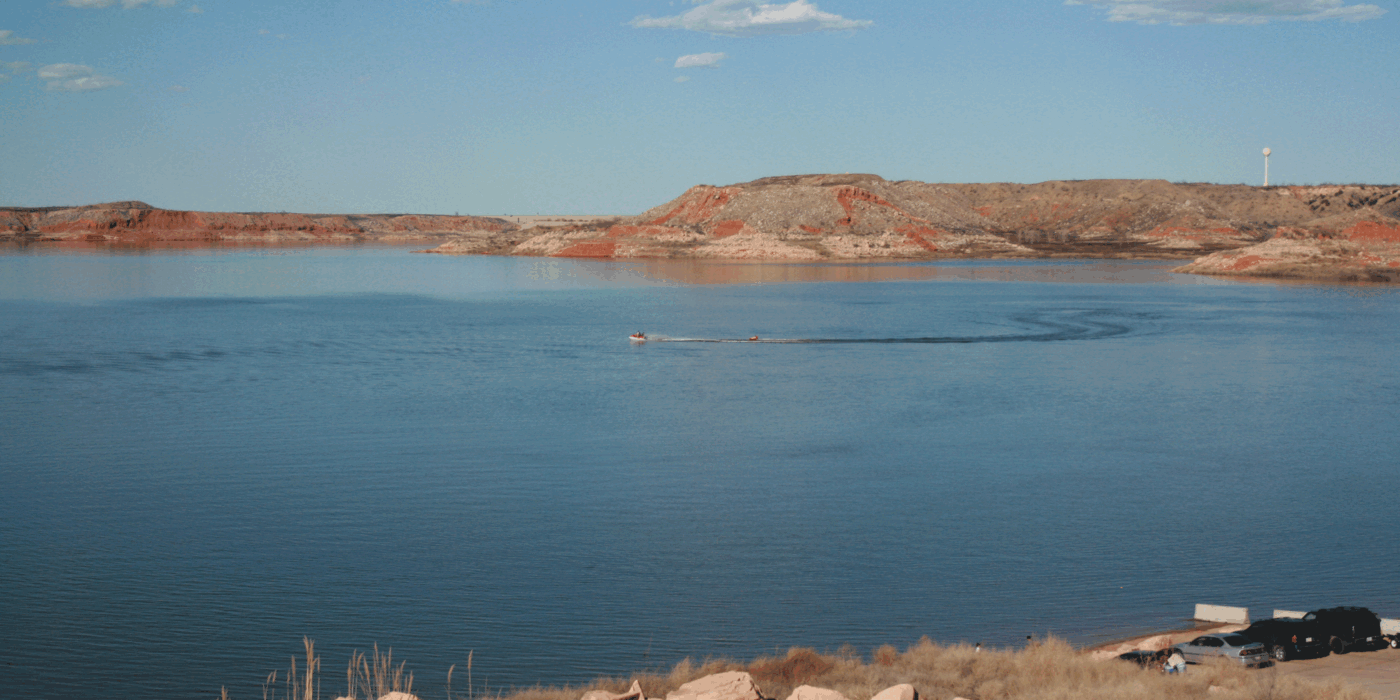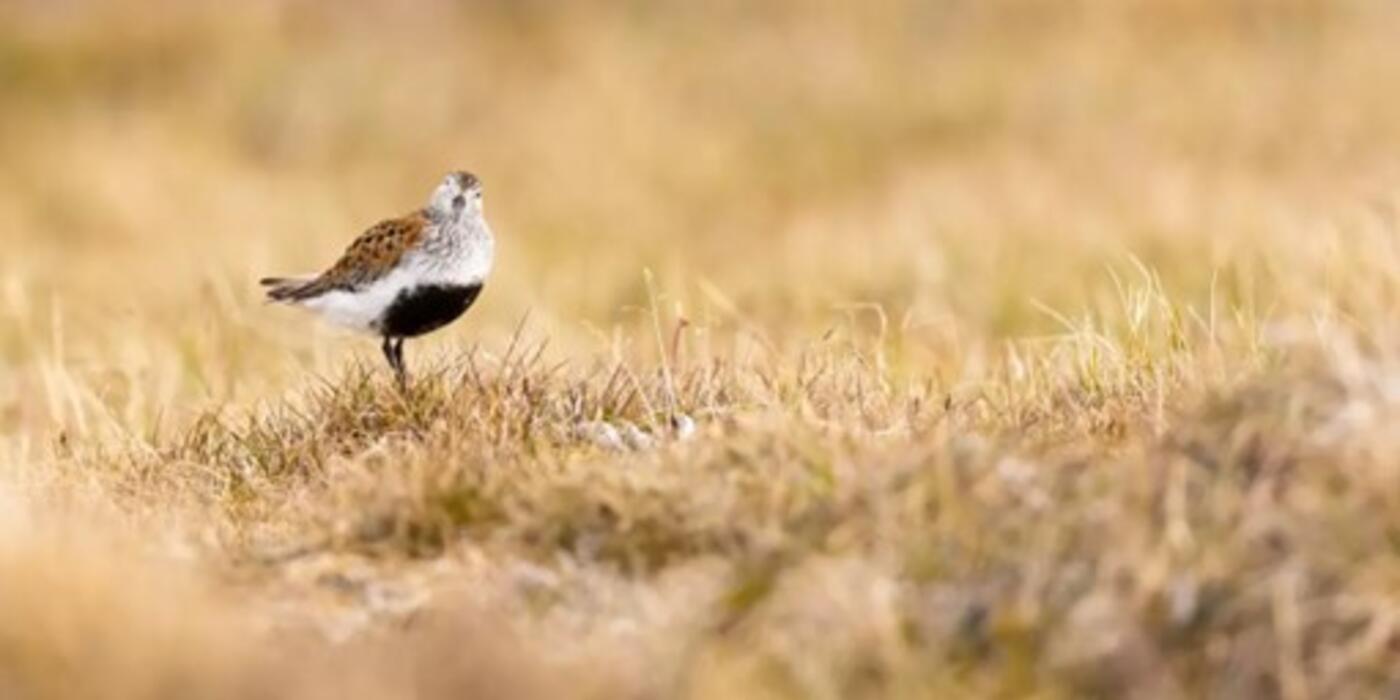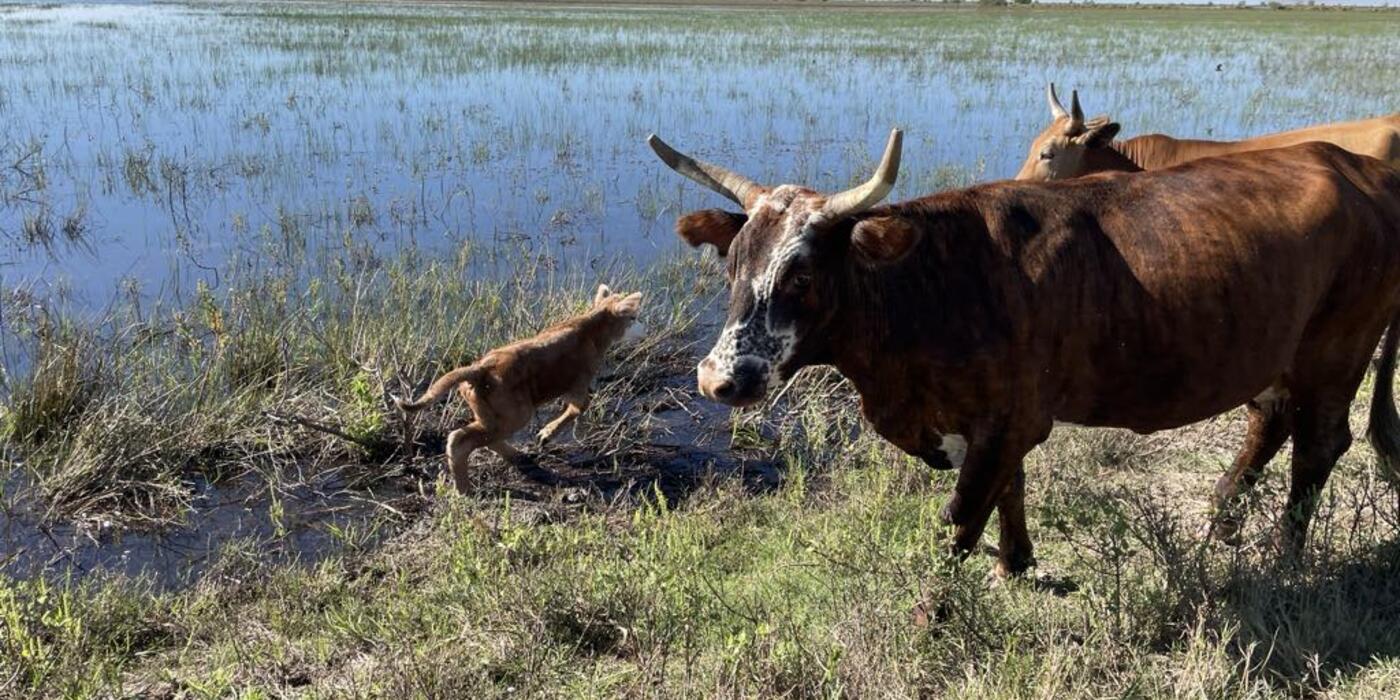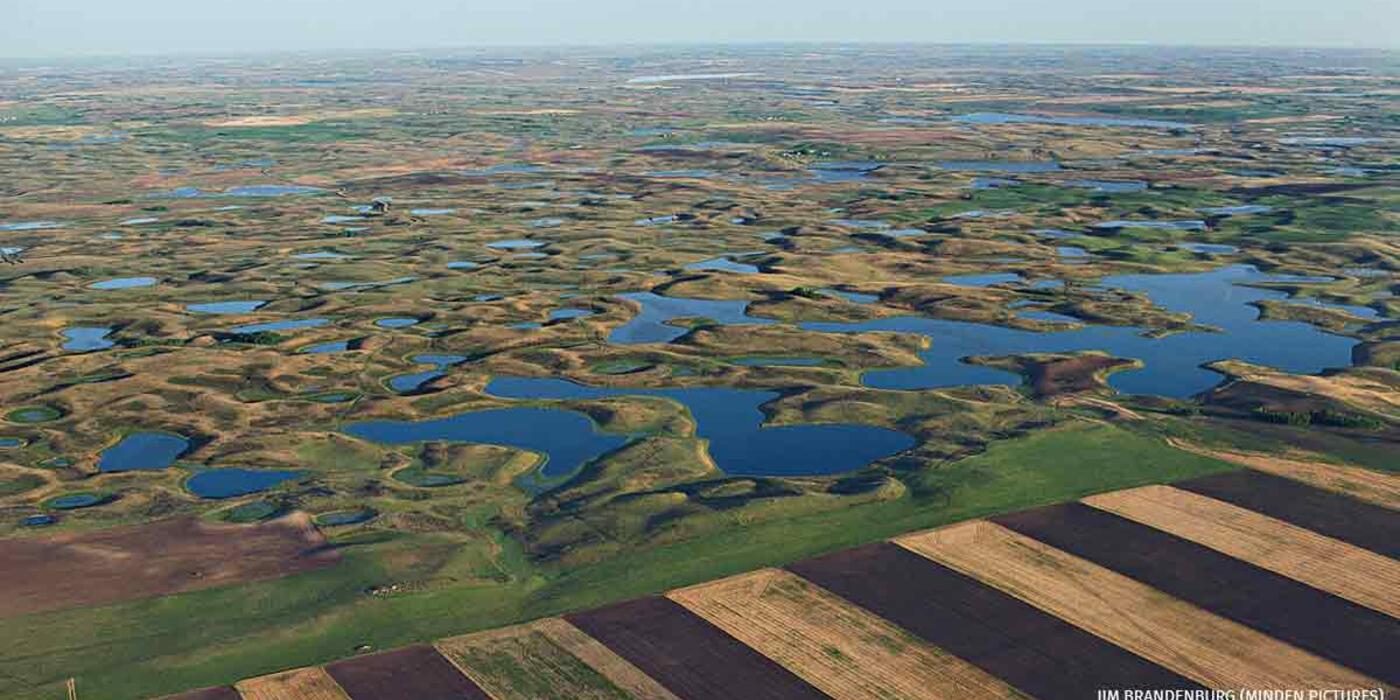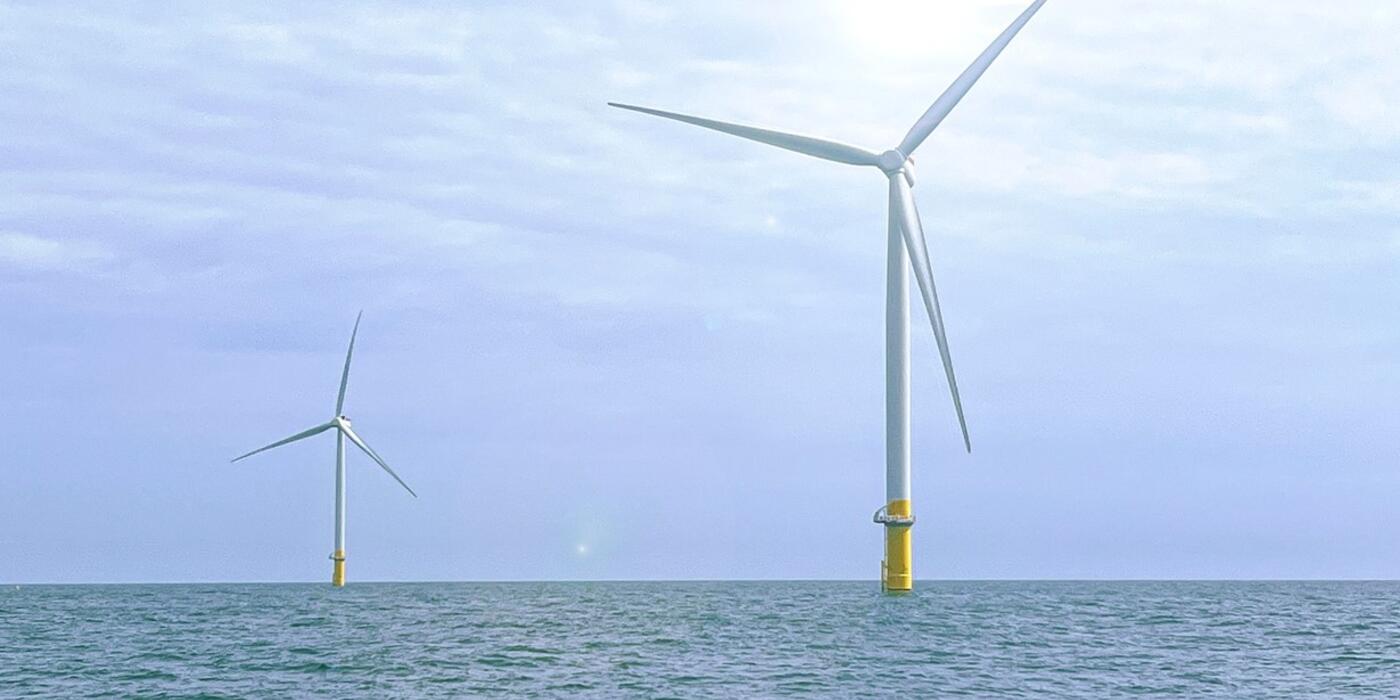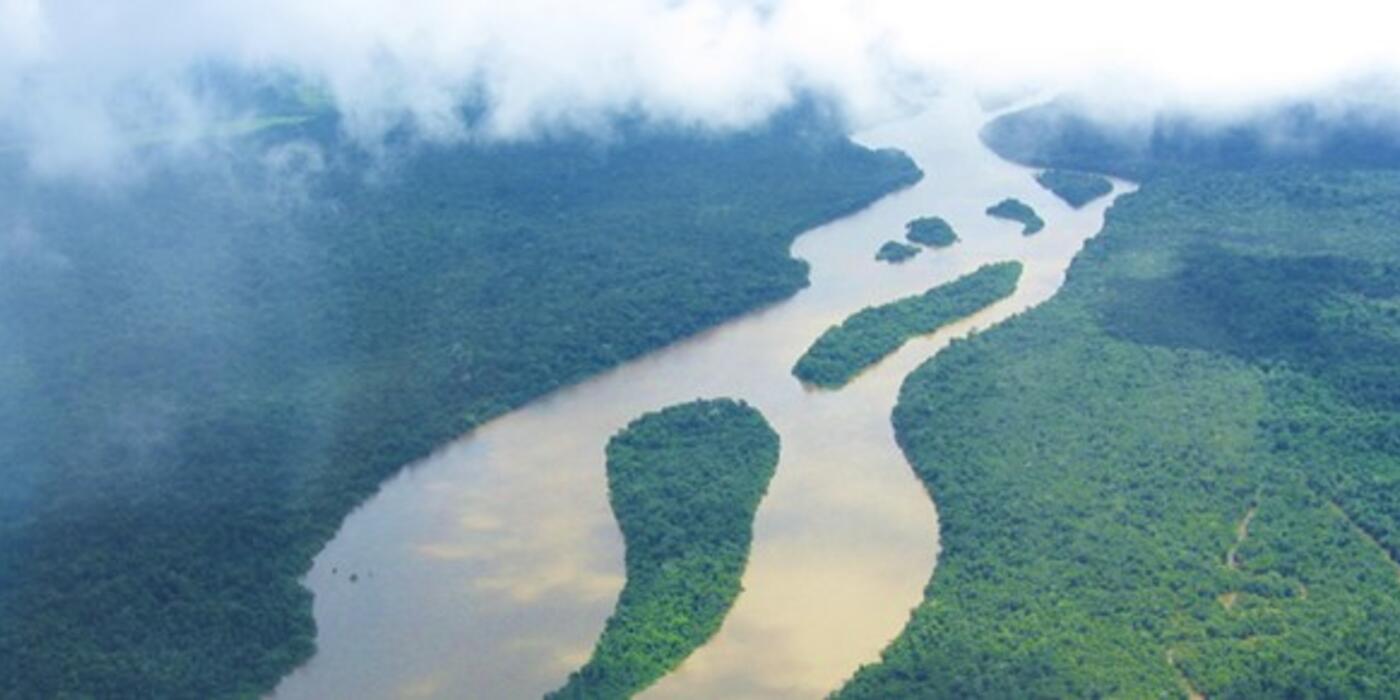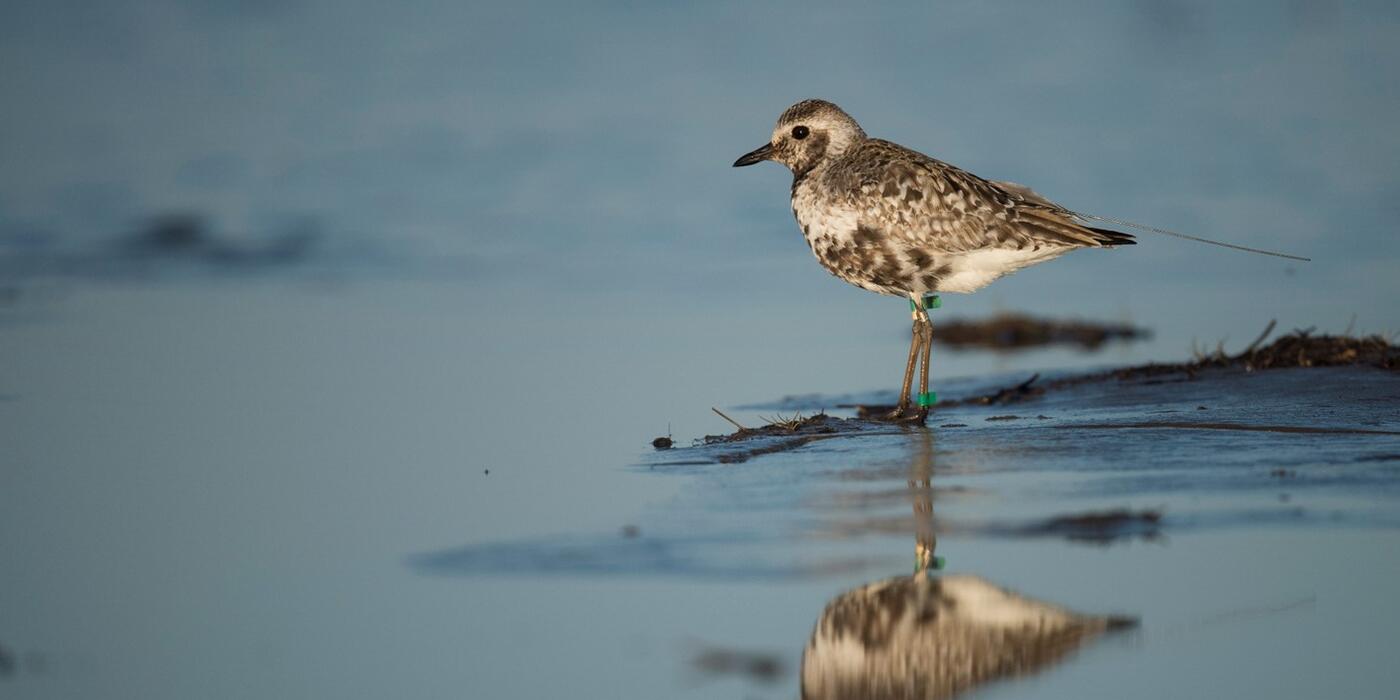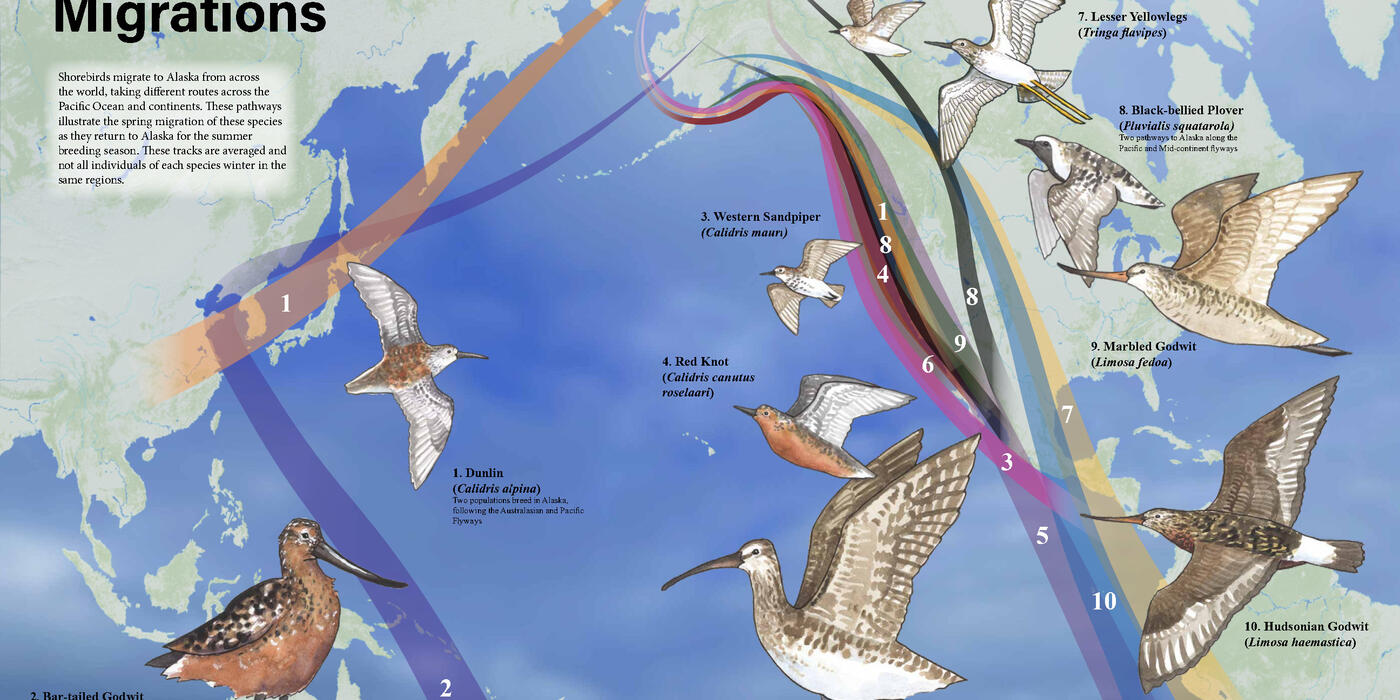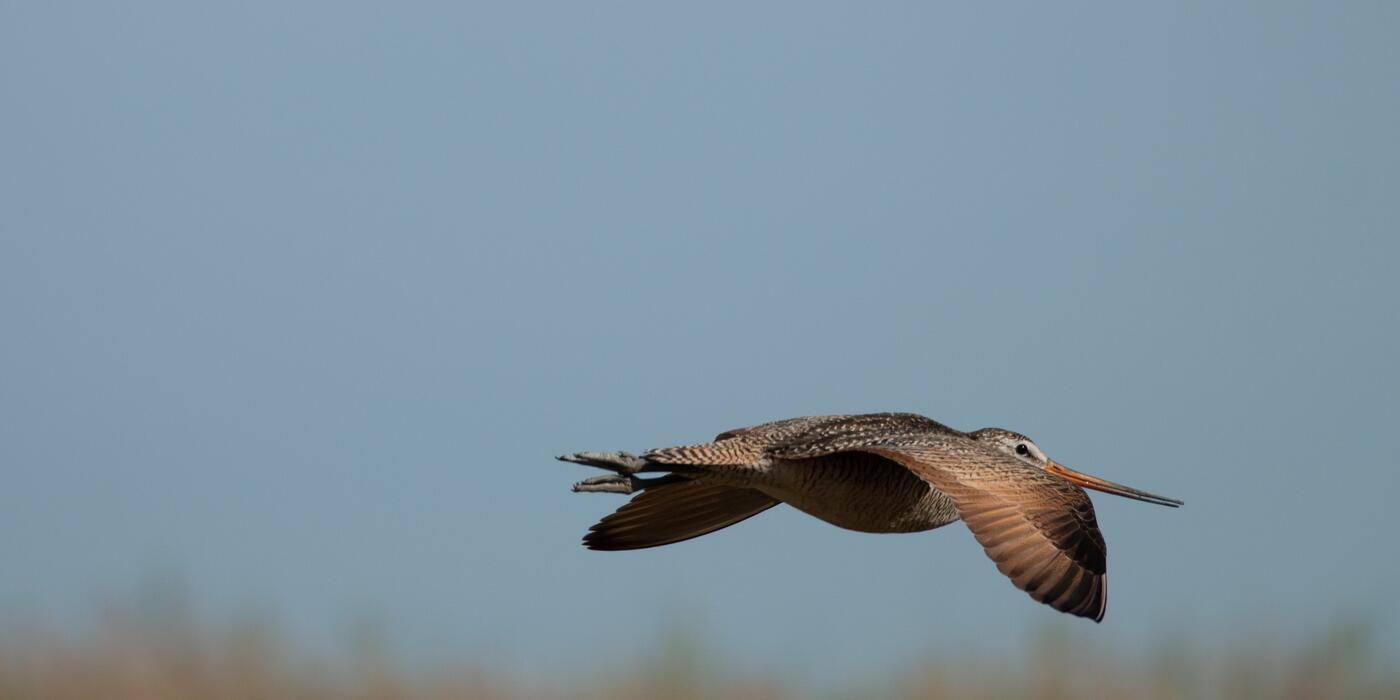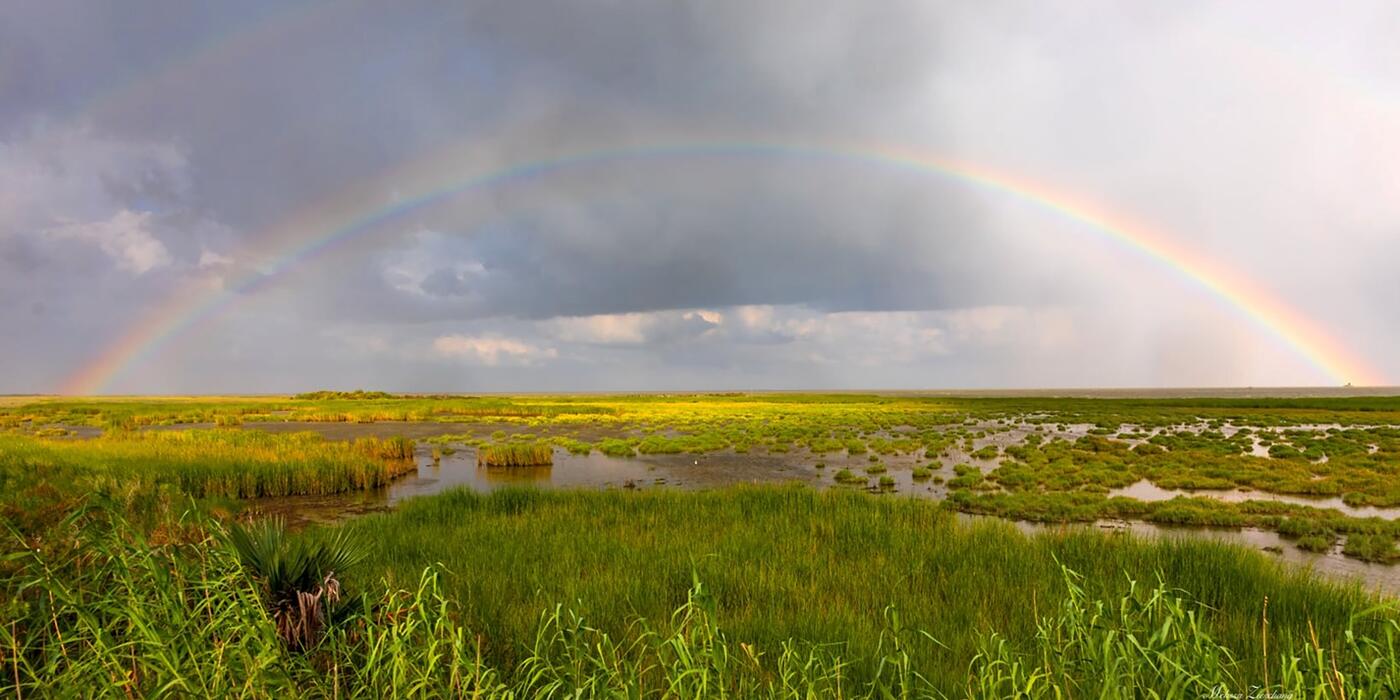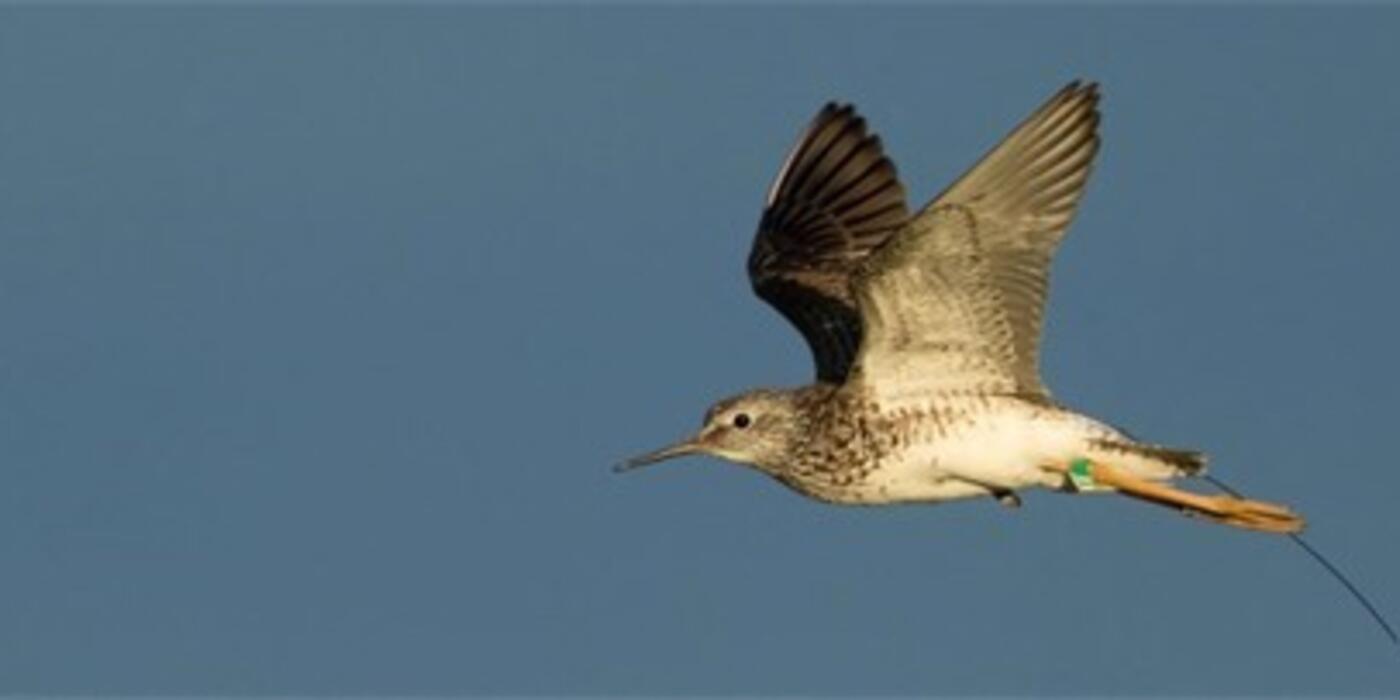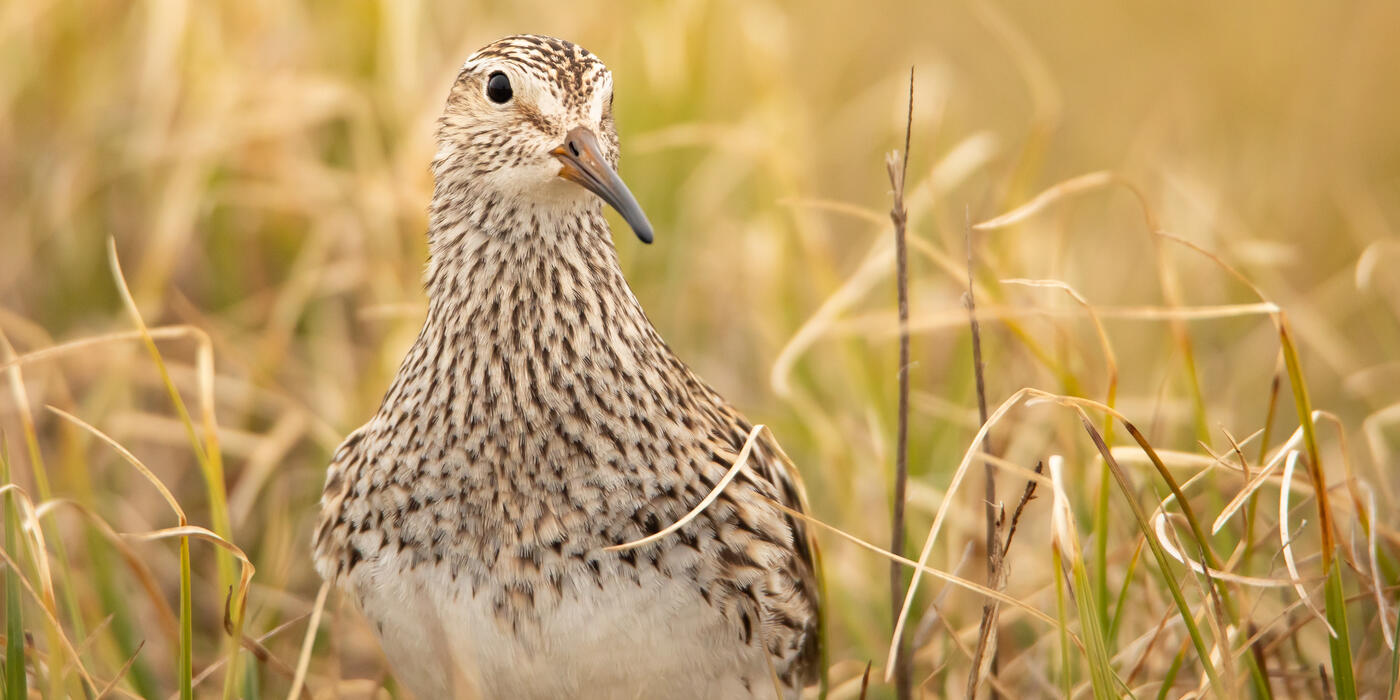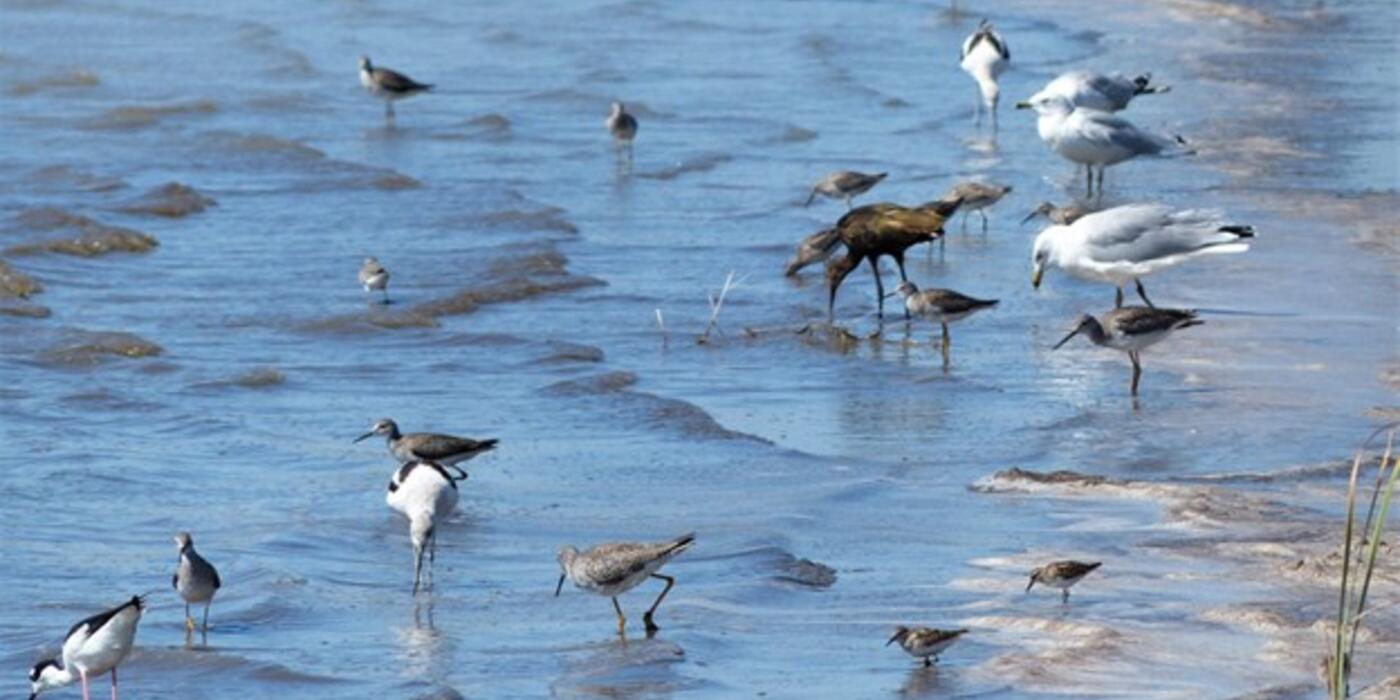Shorebirds migrate thousands of miles every year, spanning hemispheres and stopping at beaches, marshes, and grasslands along the way to rest and refuel. Throughout their vast ranges, shorebirds are vulnerable to habitat loss and degradation, direct harvest, and effects of climate change. Some populations have lost more than 70% of their numbers over the past 50 years, making them one of the most vulnerable bird groups in North America. These staggering trends emphasize the need for coordinated, focused attention on shorebird conservation.
The Shorebird Science and Conservation Collective brings together the knowledge of agencies, universities, nonprofits, and community scientists to advance shorebird conservation in the Western Hemisphere. Scientists tracking shorebirds with electronic tags across the Western Hemisphere have shared data from over 3,000 individual birds representing over 30 species that can be combined with survey and community science data to support the science needs of interested groups working to conserve and manage shorebirds and their habitats.
The Collective's work is guided by an advisory group, supported by three Smithsonian Knobloch Shorebird Conservation Fellows (a quantitative ecologist and two conservation specialists), and underpinned by generous data contributions.
Interested in contributing your data?
Join the Shorebird Collective as a data contributor and science partner. The collective works with each data contributor individually, offering a range of data-sharing permissions to give you the flexibility to decide how to share your data. For more information or to participate, contact Allie Anderson at AndersonA@si.edu or access the Data Sharing Agreement online now.
Need shorebird tracking data?
The Shorebird Collective is always seeking additional partners and initiatives focused on shorebird conservation in the Western Hemisphere. Whether you need tracking data support or have interest in partnering on a shorebird project, we’d love to hear from you! For more information, please contact Quantitative Ecologist, Allie Anderson at AndersonA@si.edu or fill out our Data Request Form.
Our Approach
Over the past few decades, scientists across the Americas have used miniature tracking technologies to track shorebird movements, revealing the annual migrations of species such as the Black-bellied Plover, Lesser Yellowlegs, Long-billed Curlew, and Buff-breasted Sandpiper.
These data have unveiled the mysteries of habitats that shorebirds rely on during their epic migrations and how sites are interconnected. Missing from these species-specific discoveries, however, is a synthesis across multiple species to inform conservation across regional flyways.
To overcome this, the Collective is synthesizing movement data to address urgent shorebird questions and is a central resource for meeting the scientific needs of conservation stakeholders.
Contributed Data
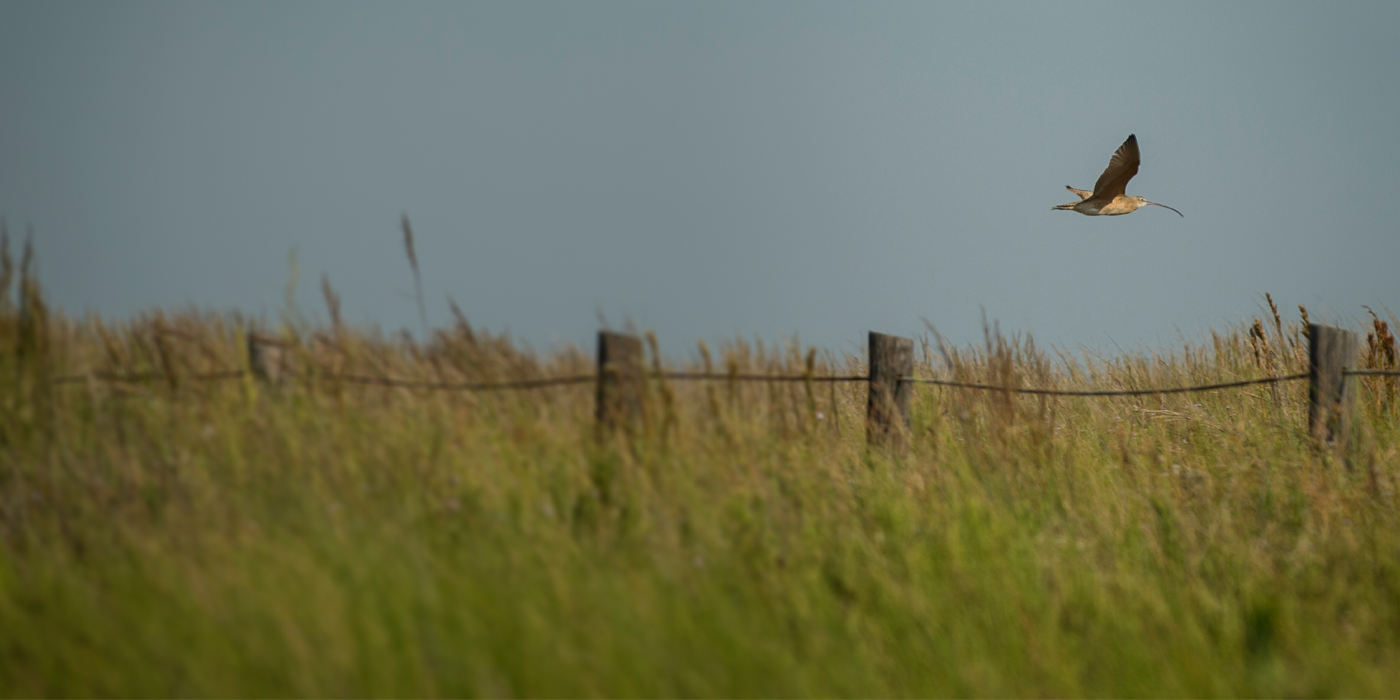
More than 70 scientists and practitioners have contributed tracking data collected from over 3,300 individuals of 35+ species to inform on-the-ground conservation action. These data are critical for making connections across species and informing effective on-the-ground conservation actions.
American Golden-Plover (Pluvialis dominica)
American Oystercatcher (Haematopus palliatus)
American Woodcock (Scolopax minor)
Black Oystercatcher (Haematopus bachmani)
Black-bellied Plover (Pluvialis squatarola)
Buff-breasted Sandpiper (Tryngites subruficollis)
Black Skimmer (Rynchops niger)
Black Turnstone (Arenaria melanocephala)
Bar-tailed Godwit (Limosa lapponica)
Common Ringed Plover (Charadrius hiaticula)
Dunlin (Calidris alpina)
Greater Yellowlegs (Tringa melanoleuca)
Hudsonian Godwit (Limosa haemastica)
Long-billed Curlew (Numenius americanus)
Long-billed Dowitcher (Limnodromus scolopaceus)
Least Sandpiper (Calidris minutilla)
Lesser Yellowlegs (Tringa flavipes)
Marbled Godwit (Limosa fedoa)
Mountain Plover (Charadrius montanus)
Pacific Golden-Plover (Pluvialis fulva)
Pectoral Sandpiper (Calidris melanotos)
Piping Plover (Charadrius melodus)
Purple Sandpiper (Calidris maritima)
Red Knot (Calidris canutus)
Red Phalarope (Phalaropus fulicaria)
Red-necked Phalarope (Phalaropus lobatus)
Ruddy Turnstone (Arenaria interpres)
Sanderling (Calidris alba)
Short-billed Dowitcher (Limnodromus griseus)
Semipalmated Plover (Charadrius semipalmatus)
Semipalmated Sandpiper (Calidris pusilla)
Solitary Sandpiper (Tringa solitaria)
Stilt Sandpiper (Calidris himantopus)
Upland Sandpiper (Bartramia longicauda)
Western Sandpiper (Calidris mauri)
Whimbrel (Numenius phaeopus)
Willet (Tringa semipalmata)
Wilson's Plover (Charadrius wilsonia)
White-rumped Sandpiper (Calidris fuscicollis)
More than 70 scientists and practitioners have contributed tracking data collected from over 3,100 individuals of 30+ species to inform on-the-ground conservation action. These data are critical for making connections across species and informing effective on-the-ground conservation actions.
- American Bird Conservancy
- Alaska Department of Fish and Game
- Aquasis Migratory Shorebird Conservation Project
- Asociación Calidris
- Audubon Canyon Ranch
- Aves de Uruguay
- Biodiversity Research Institute
- BiodiversityWorks
- Birds Canada
- Carleton University
- Coastal Bend Bays & Estuaries Coastal Bird Program
- College of William and Mary
- Delaware Bay Shorebird Project
- Delaware DNREC Division of Fish and Wildlife
- Environment and Climate Change Canada, Canadian Wildlife Service
- Environment and Climate Change Canada, National Wildlife Research Centre
- Environment and Climate Change Canada, Prairie and Northern Wildlife Research Centre
- Environment and Climate Change Canada, Pacific Wildlife Research Centre
- Federal Institute of Forest, Snow and Landscape Research WSL
- Georgetown University
- Georgia Department of Natural Resources
- Government of Alberta
- Groupe de Recherche en Ecologie Arctique
- Gulf Coast Bird Observatory
- Intermountain Bird Observatory, Boise State University
- Iowa State University
- Lund University
- Manomet Conservation Sciences
- Massey University
- Department of Ornithology, Max Planck Institute for Biological Intelligence
- McGill University
- Ministerio de Ambiente de la Provincia de Buenos Aires
- Montana Fish, Wildlife & Parks
- Montana State University
- Mount Allison University
- National Audubon Society
- New Jersey Audubon Society
- Norwegian Institute for Nature Research
- Ohio State University
- Point Blue Conservation Science
- Polar Knowledge Canada, Canadian High Arctic Research Station
- Portland Audubon
- Prince William Sound Science Center
- Ricketts Conservation Foundation
- Royal Society for the Protection of Birds
- SAVE Brasil
- Simon Fraser University
- Smithsonian Migratory Bird Center
- South Carolina Department of Natural Resources
- Southern University of Science and Technology
- SUNY-Environmental Science and Forestry
- Swiss Ornithological Institute
- Texas A&M University - Kingsville
- Trent University
- Tunghai University
- U.S. Department of Defense - Joint Base Elmendorf-Richardson
- U.S. Fish and Wildlife Service
- U.S. Geological Survey, Alaska Science Center
- Universidad Austral de Chile
- Universidad Autónoma de Nuevo León
- Universidad Autónoma Metropolitana de Mexico
- Universidad de la Republica Uruguay
- Université de Bourgogne-Franche Comté
- Université de Moncton
- Université du Québec à Rimouski
- Université Laval
- University of Alaska Anchorage
- University of Alaska Fairbanks
- University of Minnesota Duluth Natural Resources Research Institute
- University of Colorado Denver
- University of Kansas
- University of Maine
- University of Massachusetts Amherst
- University of Missouri
- University of Oklahoma
- University of Rhode Island
- University of Saskatchewan
- University of South Carolina
- University of Windsor
- University of Wisconsin-Madison
- Vermont Center for Ecostudies
- Vermont Fish and Wildlife Department
- Washington Department of Fish and Wildlife
- Wetlands International
- Wildlife Restoration Partnerships
- Wildlife Conservation Society
- York University
The Shorebird Collective has supported requests from several partnering organizations ranging from hemispheric networks and government agencies to regional joint ventures and local land trusts. This data has informed efforts in land conservation, land and species management, and education and outreach. Explore our full list of partners below:
- Alaska Shorebird Group
- Alberta Prairie Conservation Forum
- Association of Fish & Wildlife Agencies
- Audubon Great Plains
- California Rangeland Trust
- Canadian Wildlife Service
- Central Valley Joint Venture
- Coastal Bend Bays & Estuaries Program
- Cornell Lab of Ornithology
- Ducks Unlimited
- Eastern Habitat Joint Venture
- Galveston Bay Foundation
- International Crane Foundation
- Iowa Natural Resources Conservation Service
- Kansas Alliance for Wetlands and Streams
- Knobloch Family Foundation
- Lesser Yellowlegs International Working Group
- Manomet Conservation Sciences
- Midcontinent Shorebird Conservation Initiative
- Minnesota Board of Water & Soil Resources
- Missouri Department of Conservation
- Natural Resources Conservation Service
- Nature Canada
- North Dakota Natural Resources Trust
- Northern Great Plains Joint Venture
- Oklahoma Conservation Commission
- Oklahoma State University
- Pacific Birds Habitat Joint Venture
- Parks Canada
- Playa Lakes Joint Venture
- Prairie Potholes Joint Venture
- Texas Parks & Wildlife Foundation
- Texas Partners for Fish & Wildlife
- Texas Water Trade
- The Conservation Fund
- The Nature Conservancy
- Universidad de la República, Uruguay
- U.S. Fish & Wildlife Service
- U.S. Geological Survey
- Utah Division of Wildlife Resources
- Western EcoSystems Technology, Inc. (WEST)
- Western Hemisphere Shorebird Reserve Network
Recent Work
Explore recent conservation projects supported by the Shorebird Collective.
Meet the Team
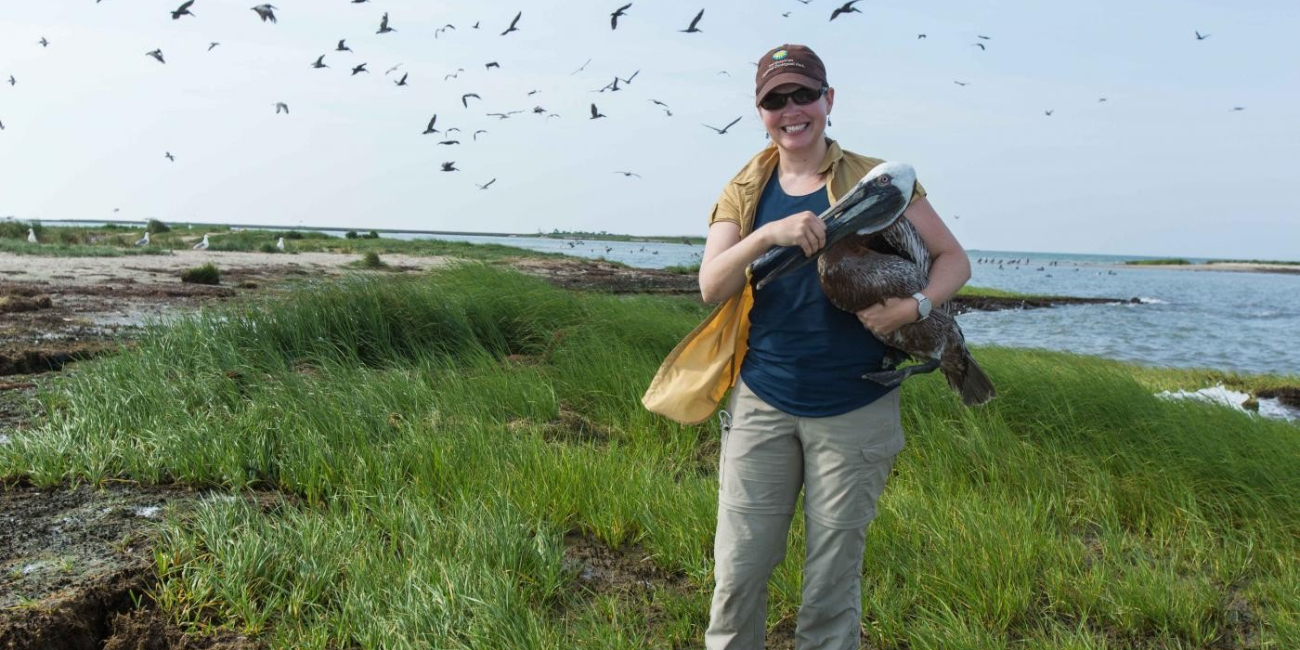
Dr. Autumn-Lynn Harrison
Principal Investigator/Research Ecologist
Smithsonian Migratory Bird Center
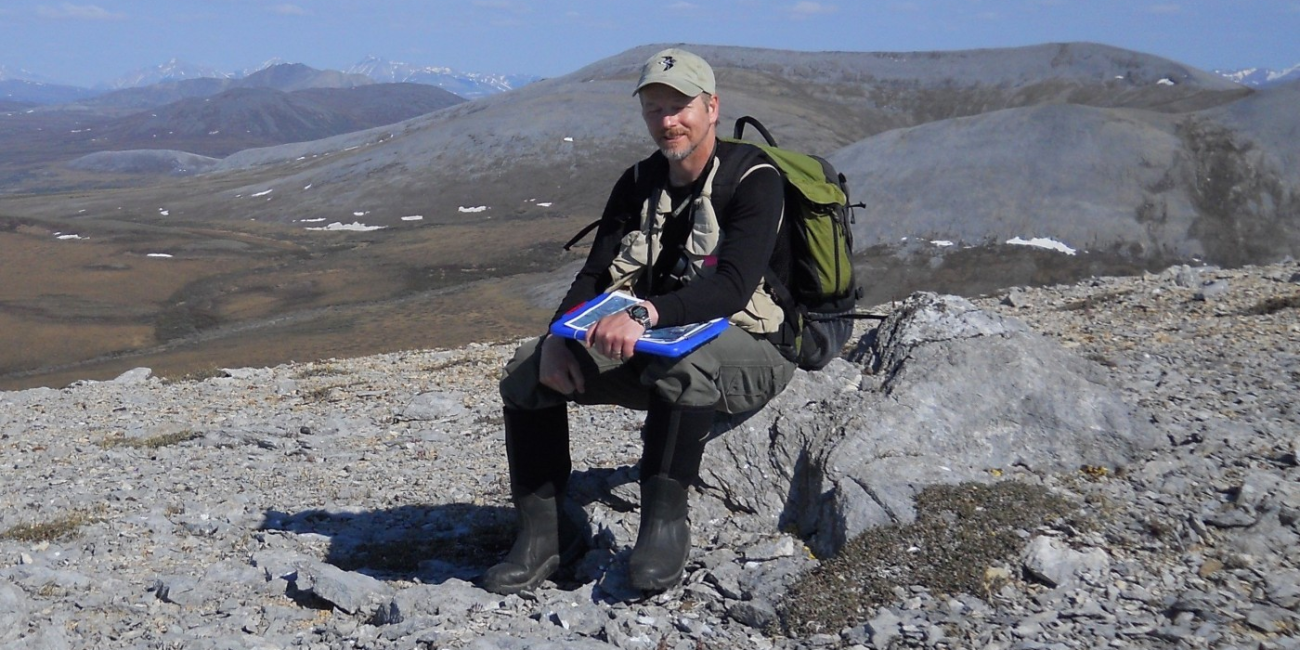
Rick Lanctot, Ph.D.
Chair of Advisory Group/Alaska Shorebird Coordinator
U.S. Fish & Wildlife Service
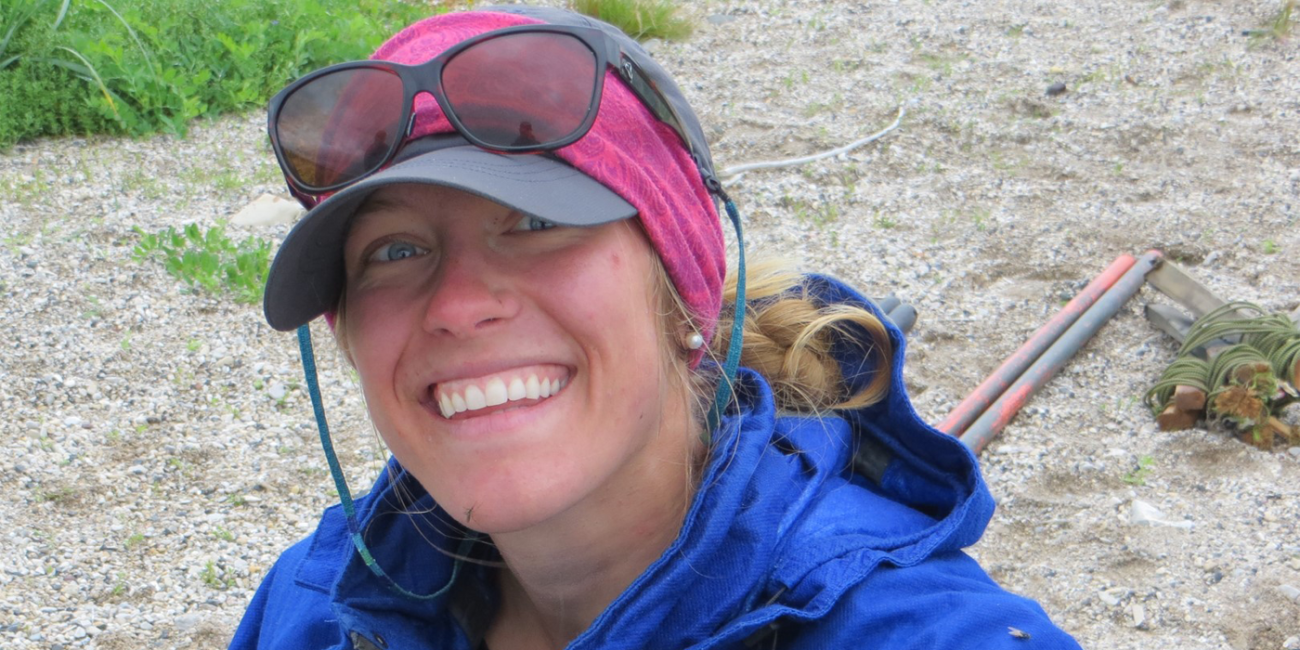
Alexandra Anderson, Ph.D.
Quantitative Ecologist
Smithsonian Migratory Bird Center
The Shorebird Science and Conservation Collective is funded by a grant from the Knobloch Family Foundation. This initiative is led by Smithsonian Migratory Bird Center Research Ecologist Autumn-Lynn Harrison, Ph.D., and U.S. Fish and Wildlife Service Alaska Shorebird Coordinator Richard (Rick) Lanctot, Ph.D.
For more information or to participate, please contact Autumn-Lynn Harrison at HarrisonAL@si.edu.
